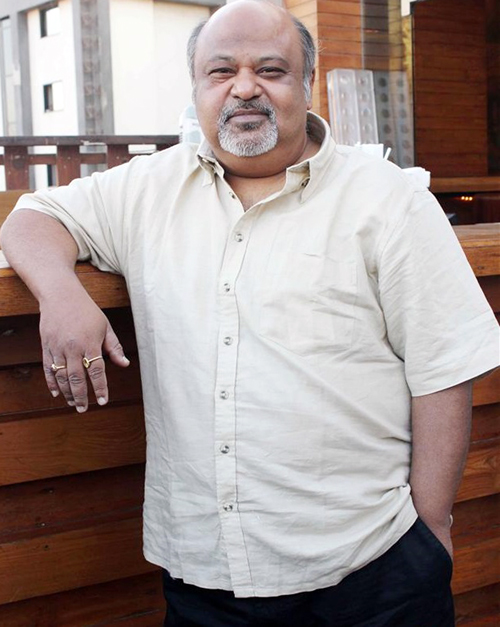Do not ever mistake Saurabh Shukla as any other Bollywood comedian. He is one of the finest actors in Bollywood and his National Award for his performance of the small court judge in Jolly LLB is just a drop in the ocean. Barff, a Hindi play directed and written by Saurabh Shukla in which he also plays one of the key roles, is being staged very successfully across the country. In a one-to-one with Shoma A Chatterji, Shukla holds forth on theatre, cinema, acting and the direction in which these cultural worlds are flowing.
Tell us a little about the play Barff.
It is based on a short story by Ranjeet Kapoor. I bought it to make a film but when I got a call from Bharangam to stage a play, I felt it could be turned into a play. It is a very unusual play produced by Ashvin Gidwani. Barff is a thriller that covers the events of a cold, snowy night in a village in Kashmir. I play Dr. Siddhanth Kaul, who comes to the aid of two desperate parents of an ailing child persuaded by the cabbie who is driving him around to come and take a look at the child.
The press notes and ads tout the play as a thriller. Why?
The thriller as a genre is not very popular in Indian theatre. Thrillers are a great medium to tell a story because they not only provide you with an edge-of-the-seat experience, but are more engaging. But as you go along in Barff, it moves much beyond the thriller genre bringing across conflicting questions of truth, reality and belief.
Since it is set in a small and deserted village in Kashmir Valley, would you call it a political play?
The story was not written with the agenda of Kashmir’s politics. But I believe that a story is never free from the politics of the land it is set in. At many levels, the beliefs of the doctor and the Kashmiri couple never meet on common ground. This brings out the larger theme of ‘what is truth and what is illusion’, something one need not travel to Kashmir to learn. We are faced with this question in our daily lives too.
As an actor and writer on stage and on screen, what differences do you find in these two media?
For me, a play and a film is the same so far as the writing of it goes. A film is written three times – once during the scripting, once during the production and once when it is being edited on paper and later on film. For me, theatre demands the same industry and focus. So far as acting on stage goes, for me the writer stopped the moment I decided the story was good enough to go on stage. I then had to think like a director, how to amalgamate various elements like set design and lighting and visually translate the script. But in theatre, actors play a huge role in interpreting the larger picture, serving as a micro-view to the subject. Switching roles needed to be very fluid.
Why choose Kashmir of all places?
Barff was originally set against a rainy day in Malshej Ghat, which gets secluded during the monsoons. But I felt the story and characters demanded a more-than-normal setting and exclusive seclusion that would help construct illusions, so I chose Kashmir. Unlike everyone who lives in the Kashmir Valley, the people in Maharashtra do not have to face anxiety and a fear of the unknown every minute of their lives. I had travelled to Kashmir for the shooting of a film. The local people are as beautiful as the place is. While I interacted with them, I could sense volatility in them when it comes to trust. Villages deserted by the inhabitants in search of safer pastures complemented the demands the story made.
Why do theatre when an actor already has a good demand in cinema which is more visible, powerful and paying?
I never had to give up on a good film role because of my preoccupation with theatre. So when actors say that they do not do theatre because it might mean giving up on a meaty film role, they are wrong. For films, I agree that we are all busy actors and I am one of them. Most of it comes from the passion we have for our work. We must also earn from acting. But as actors, theatre allows us to grow, to develop and not to get stuck in the groove with similar roles in umpteen films.
Has commercial cinema changed in recent times?
Yes, of course it has. You have mainstream films which have wonderful stories and span a multiple of genres. Films like Paan Singh Tomaar, Jolly LLB, Neerja and Dangal are all mainstream films made on big budgets with big stars. But their storylines, treatment and strategy do not fall within the ‘mainstream’ as we know it. This is a quality theatre already has grown with. (TWF)


